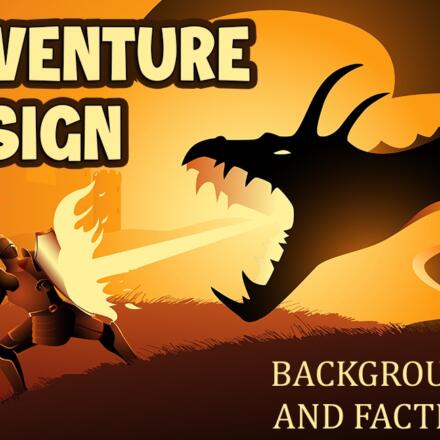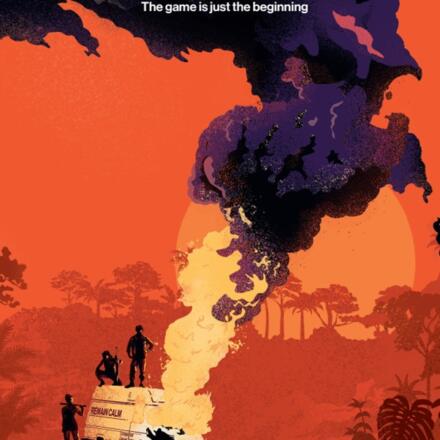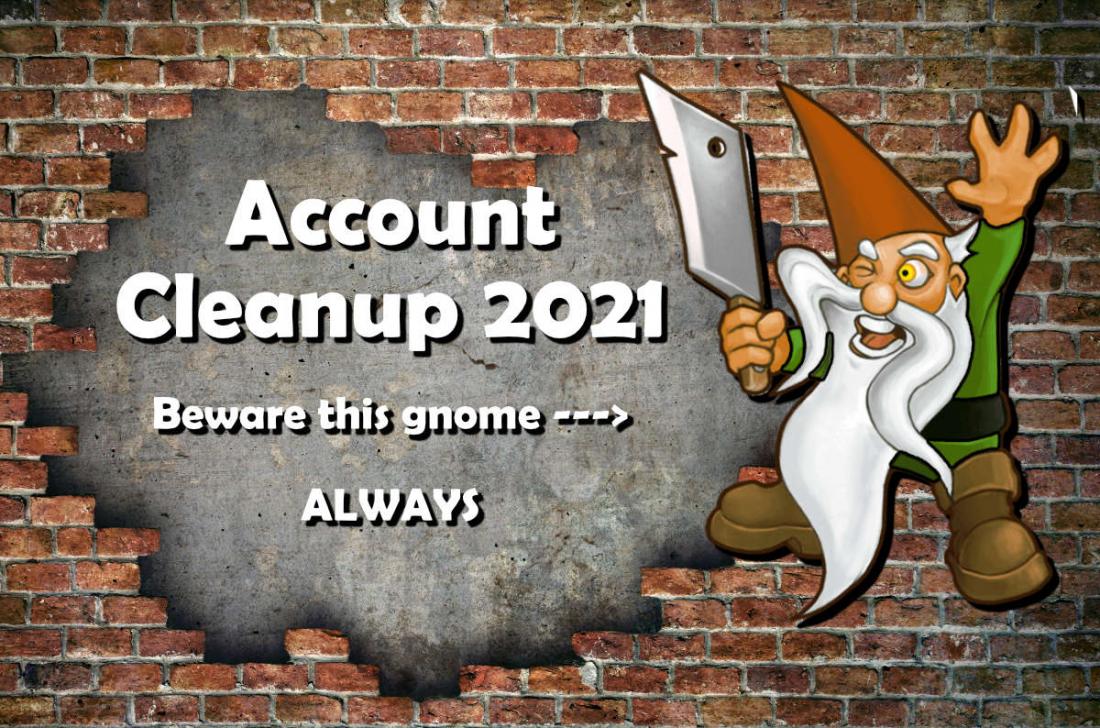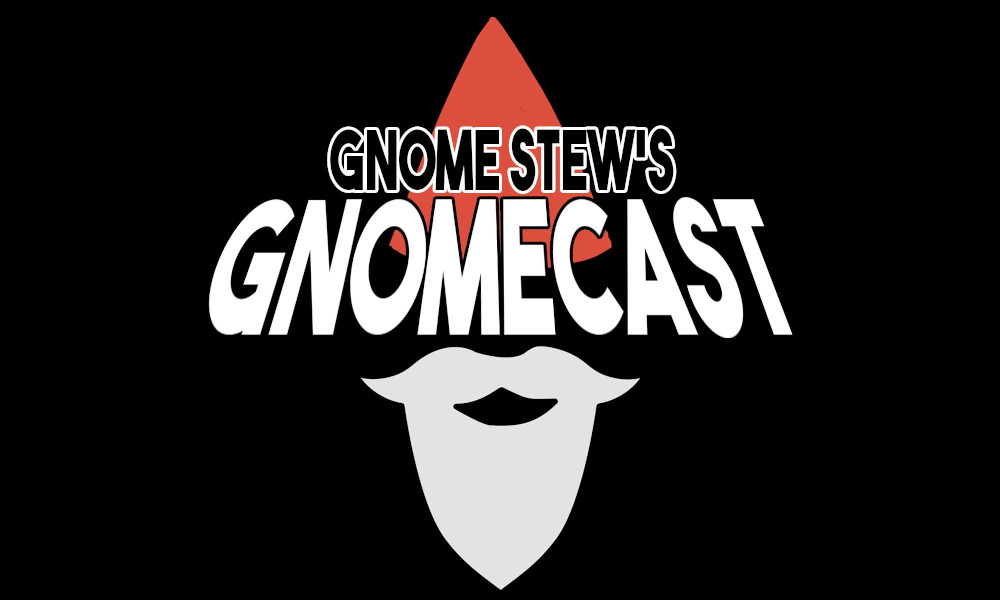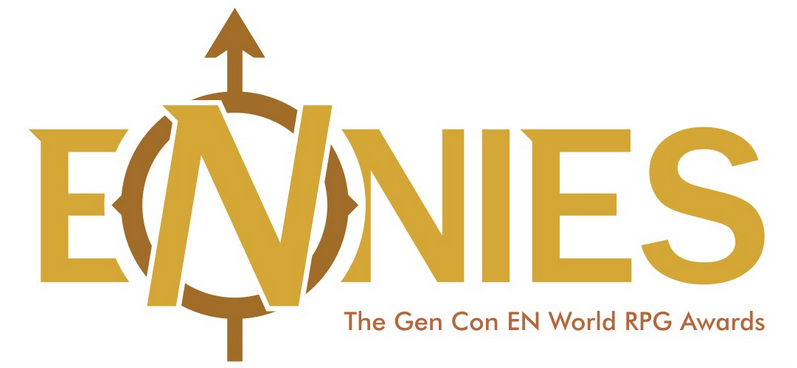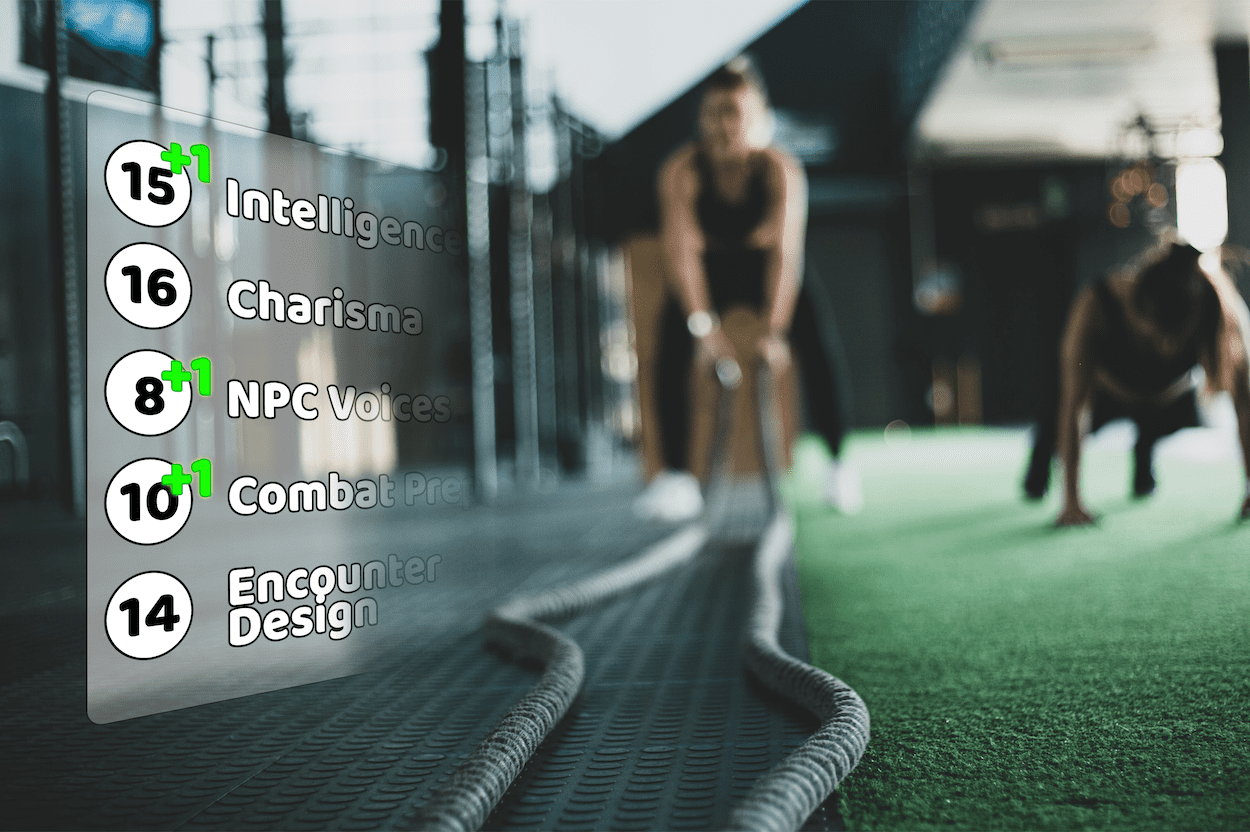
Ahh, January, that time of year when we make resolutions we are definitely going to stick to. Maybe you’ve resolved to improve your GMing in the new year. Perhaps you decided this would be the year you finally take your turn in the hot seat. Maybe you stumbled onto this article in the middle of summer and are just looking for a couple of quick tips.
Regardless of the promises you made to yourself, today we’re going to take a journey that begins with identifying our problem areas and ends with a plan to min/max the heck out of our GM-fu.
Ready? Queue up “Eye of the Tiger” because it’s time to do this!
STEP ONE: Identifying Our Problem Areas
The first step in min/maxing our GM skills is knowing where to devote our effort, and in order to do that, we need to get specific.
A Caveat on Anxiety: There can be a fine line between wanting to improve ourselves because we love this hobby and wanting to improve because we’re insecure in our abilities. A lot of self-improvement blogs use that line to get clicks and engagement, especially at the start of the year. But this isn’t one of those blogs.
So before we go any further, let’s acknowledge that there is no such thing as a perfect game master. To some extent, we’re all improv GMing our way through life. No one really knows what they’re doing, but those of us who care enough are trying hard to do better, and that’s what matters.
Even if we yeet our anxiety out the window, insecurity tends to cling to the trellis. How do we know the difference between the skills we need to work on and those the mind weasels use to keep us up at night?
The answer is simple: specificity.
If you can point to a specific aspect of how you run games and say, “Yes, this is what I want to improve. This distinct thing right here.” Then, congratulations, you have identified an area that needs improvement.
On the other hand, if you have a general fear that everything is horrible and nothing is right, that’s anxiety trying to crawl back through the window.
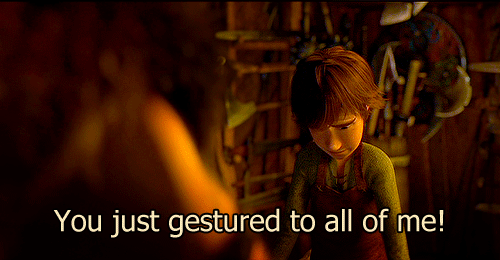
Don’t be like Stoick the Vast and Hiccup.
If you still need help, source your table. Talk to your players and see if they have constructive criticism, or try implementing a formal system of gathering feedback like the Stars & Wishes method developed by Lu Quade over on The Gauntlet.
STEP TWO: Getting (More) Specific
So let’s say you’ve soul-searched, brainstormed, and sourced your table to come up with a list that looks like this:
- Rules Mastery
- Improv Skills
- Storytelling and Roleplaying
That’s a great start, but those topics are way too broad. Like, those are Texas-sized topics, and we’re looking for topics the size of Pittsburgh. Take one of your areas and drill down. Then, drill down again. And again. Go until you get to the smallest bite possible.
Take “Rules Mastery” for example. This is one of the areas I want to improve this year, but I’m mostly running Pathfinder 2E, so that’s hundreds of pages of potential room for improvement. Instead of trying to eat all of that at once, I’ll drill down into a specific area of the rules. Combat is an easy example.
“I want to get better at the way I run combat” is a good start, but we can get even more precise. I want to get better at running more dynamic combats, combats with environmental hazards, and something as seemingly simple but rather complicated as starting combat from stealth.
Now my list looks like this:
- Running dynamic combats
- Mastering hazard rules
- Deciphering stealth mechanics
That’s the level of specificity we’re looking for, and once we achieve that, we can begin the fun part: research!
STEP THREE: Seeking Knowledge
Research can come in two forms, the first makes us feel like wizards in our towers, gathering spells and lore, and the second puts us in the audience of an exceptional bard, getting advantage through inspiration.
RESEARCH
Once you know precisely what you want to improve, you can hit the books (and the podcasts, and YouTube videos, and advice blogs). Your very specific topic becomes the basis for the search terms you’ll use to not only hunt down the knowledge needed but also help you narrow down the prodigious amounts of TTRPG content out there.
Since I don’t know the specific areas you want to improve, I can’t make bespoke recommendations, but I can advise you to read (and watch/listen/consume) broadly. You’re just as likely to discover helpful information in a book on novel writing as you are in a YouTube video on improv or voice acting, and nothing makes a dry self-help book on productivity or team management more enjoyable than figuring out how you can apply the techniques to your table at game night.
If you’re in the market for some general resource recommendations, well, you’ve already found Gnome Stew, but have you tried podcasts like Panda’s Talking Games or The Misdirected Mark Podcast / MM Plays? These treasure troves of knowledge heavily influenced much of the advice in this article.
INSPIRATION
Speaking of inspiration, we can’t forget to consume media we want to emulate. We are what we eat, after all.
Your inspiration doesn’t have to only come from TTRPG-related materials either. Play video games. Read novels. Binge-watch a series or fifteen! Look at how other people tell their stories, pull them apart, and see how you can use the pieces to improve your storytelling.
Say what you want about the reality of professional actual plays, but there’s nothing wrong with being inspired by professional work. Pro athletes have been inspiring people to go out for school sportsball teams, community intramural clubs, minor leagues, and even major leagues for decades, and shows like Dimension 20 and Critical Role can do the same for us.
They say comparison is the thief of joy, but I think this only applies when anxiety clings to the window ledge. Yeet that bugger off a cliff this time and approach media not as something to judge yourself by, but rather something to aspire towards.
STEP FOUR: Project Managing The S#!% Out of It
We’ve found the specific areas we want to improve, and we’ve begun collecting research materials; what do we do next? Where’s our training montage?
If your day job, like mine, involves you being a Very Professional Business Person™, then you might be familiar with things like SMART Goals or Agile Development. Those are incredibly powerful project management techniques, and we could use them to plan our journeys, but if you’re unfamiliar and you don’t want to add more items to your research list, you can use this simplified method:
- Create a schedule to research your topic, take notes, and just learn. A little bit of time every day or a bigger chunk occasionally throughout the week. Whatever works. The important thing is to stay consistent.
- Then, give yourself time to process what you’ve learned. Your brain needs to sit with new information before synthesizing it from theoretical data into practical knowledge. Don’t overload yourself. Remember: one bite at a time.
- Once you’re comfortable with your new knowledge, implement it into your game! Test it out! And then, once you’ve tried your new skills…
- Iterate and reiterate! Adjust based on how you performed. Tweak what you need to learn and practice for next time.
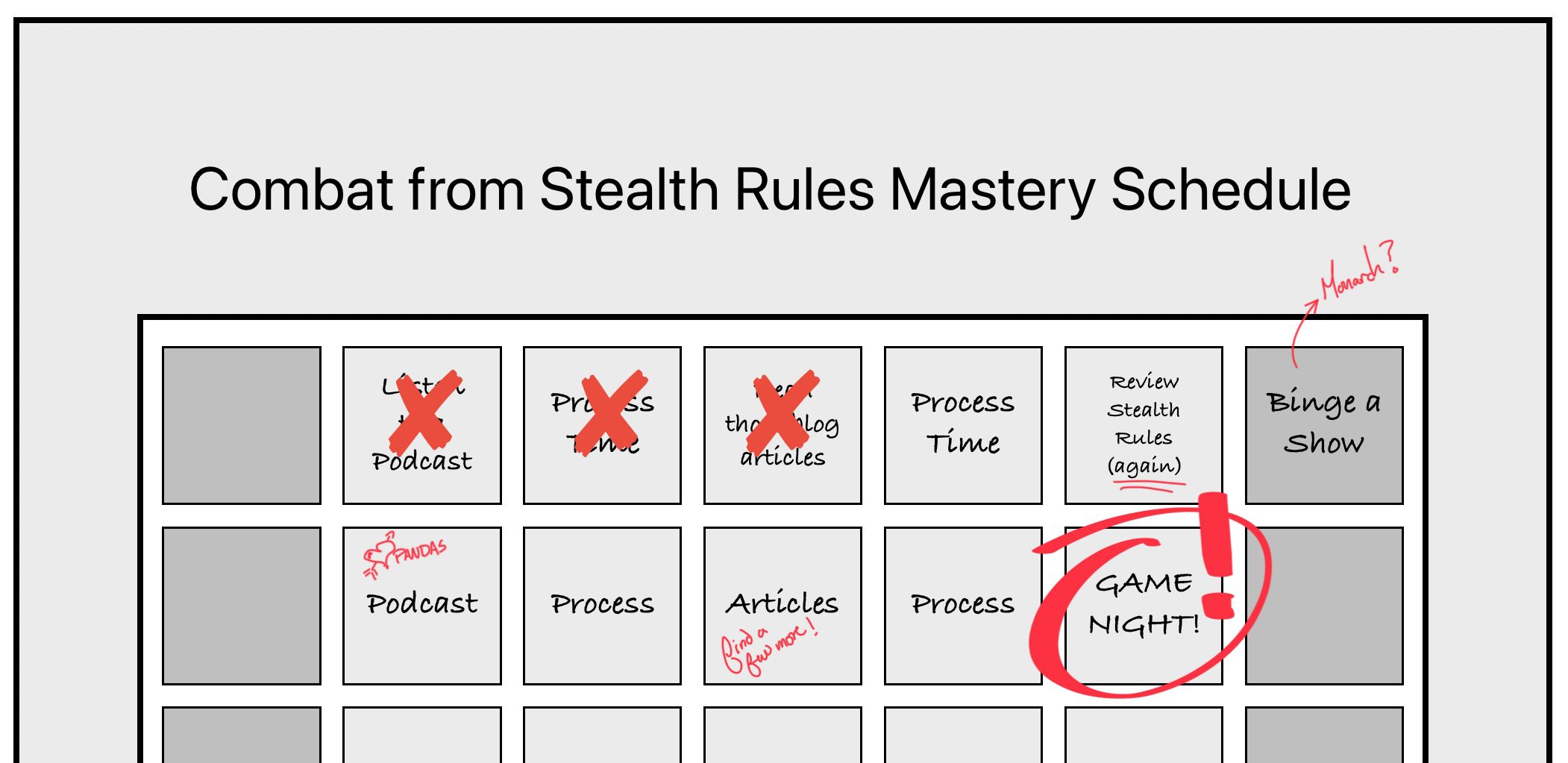
A note on your schedule: at the beginning of the year, it’s very common for people to over-promise their commitment to routines and then abandon them when they can’t keep up. (Hello, unused gym memberships.)
The trick to dodging this pitfall is to reevaluate your new routine after a few weeks. Check in with yourself and see how it’s going. Forgive yourself if you haven’t been able to keep up. If you have, ask if your pace is sustainable (and answer truthfully; just because you CAN suffer through a grueling routine, it doesn’t mean you HAVE to do it). Then, revise and start again. Repeat this throughout the year, and you’ll not only be able to stay on top of your tasks but even take on more as your tolerance increases!
We Are Mighty
To paraphrase the popular home repair TikToker, Mercury Stardust, learning something new can be scary, but we devote a lot of time to this dice-chucking hobby of ours, and we’re worth the time it takes to level up.
What GM skills are you going to work on this year? Let us know in the comments, and let’s help each other reach our goals!


